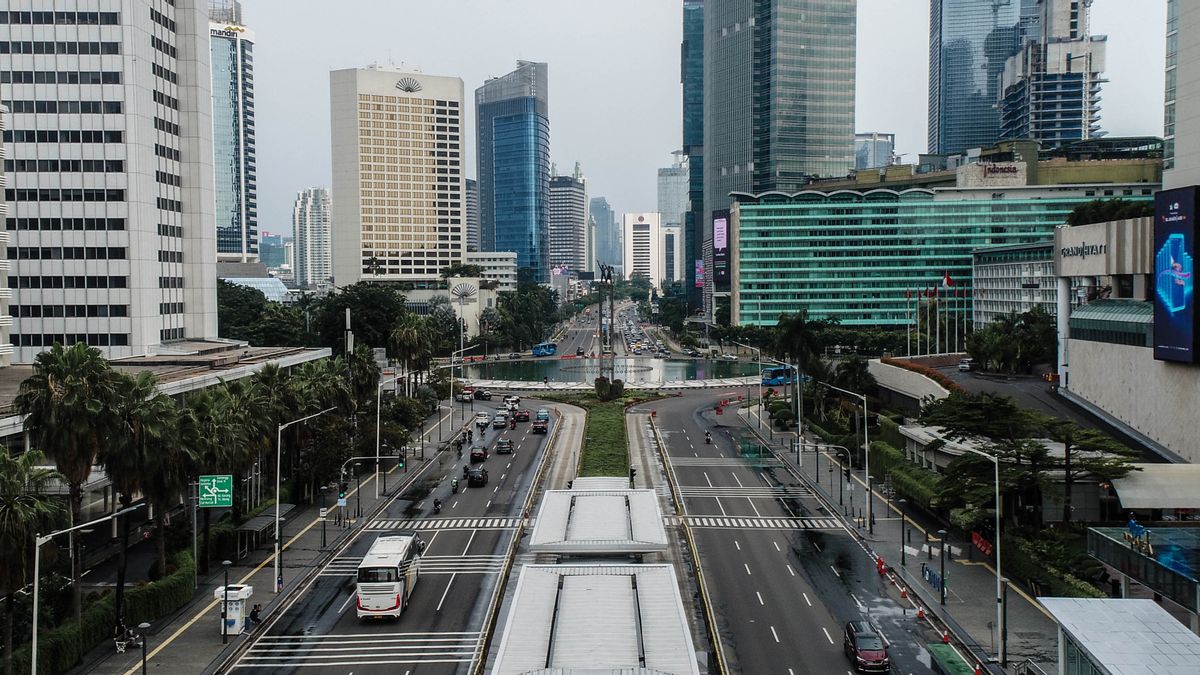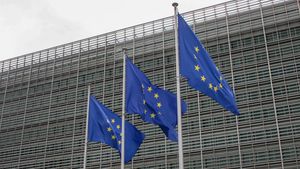JAKARTA - The negative impact of COVID-19 has affected all sectors. As a result of the pandemic, world economic growth slowed down, while national economic growth in the second quarter of 2020 contracted or minus 5.32 percent. Handling COVID-19 has a major impact on the economy of each country, including Indonesia.
Executive Secretary I of the Committee for Handling COVID-19 and National Economic Recovery (PEN) Raden Pardede said there are several factors that determine the country can recover quickly from the impact of the COVID-19 pandemic. One of them is a sense of security in the midst of this epidemic.
"We see that it will be difficult for countries in the world to recover if the sense of security and trust (in the government and handling COVID-19) does not appear (in that country)," he said, in a virtual discussion, Monday, August 10.
Raden said, it must be admitted that the increase in COVID-19 cases made people worried about shopping and chose to hold back on spending. This also makes people's consumption decrease.
"They do not want to shop, except on important things, or prioritize food. But if, for example, they shop for goods, it is relatively very lacking," he said.
Raden said, to create a sense of security and trust, the government is trying to find solutions so that handling the COVID-19 pandemic can go hand in hand with economic recovery.
Furthermore, Raden said, the committee and the government made a target of striving to avoid a recession in the third quarter of 2020. Because, if that happens it will have a more negative impact on the Indonesian economy.
"A recession has a psychological impact that is not easy. Recession (causes) very low job creation and even a huge wave of layoffs. So the words R or recession we need to avoid now," he said.
In addition, said Raden, the government also continues to develop a vaccine for COVID-19. This is to create a sense of security in the midst of a pandemic and new normalcy. With the vaccination, the community can do their activities safely.
"In addition to controlling COVID-19, we also have immunity. That's why the strategy to find a vaccine is a very important strategy going forward," he explained.
As is known, as of Sunday at 12.00 WIB, the total accumulated cases in Indonesia reached 125,396 people since the first case was found in Indonesia. Currently 480 districts / cities from 34 provinces have cases of COVID-19. That means, there are still 34 of the 512 districts / cities that do not have COVID-19 cases.
The province with the most new cases is in DKI Jakarta with 440 new cases and a total of 25,727 cases. DKI Jakarta is also the province with the most accumulated cases in Indonesia.
East Java has 408 new cases with a total of 25,330 cases. West Java with 179 new cases and a total of 7,566 cases. Central Java with 140 new cases and a total of 10,611 cases. Then, South Kalimantan has 83 new cases and a total of 6,715 cases.
Raden said, with the increasing number of positive cases of COVID-19 every day. The government also continues to work on handling it by making Indonesia healthy.
"The government is taking the first steps, what we say is that Indonesia is healthy, how can we restore our trust so that we can be more confident that we can overcome COVID-19," he said.
The English, Chinese, Japanese, Arabic, and French versions are automatically generated by the AI. So there may still be inaccuracies in translating, please always see Indonesian as our main language. (system supported by DigitalSiber.id)












